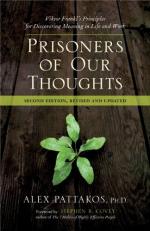|
This section contains 5,539 words (approx. 19 pages at 300 words per page) |

|
SOURCE: "The Philosophy of Death in Viktor E. Frankl," in Journal of Phenomenological Psychology, Vol. 13, No. 2, Fall, 1982, pp. 197-209.
In the following essay, Kovacs examines Frankl's notion that death is a natural and integral part of living and that it contributes an understanding of the existential meaning of life.
Human attitudes towards the insurmountable factuality of personal death are not simply a syndrome of behavioral mechanisms for coping with a situation of stress, but, more significantly, they express philosophical and ideological understandings of the nature of death from the perspective of human living. Existential phenomenology examines the phenomenon of death precisely in accordance with the methodological significance of the relationship between attitudes and ideas or insights. The philosophies of death of Nietzsche, Jaspers, Scheler, Heidegger, Sartre, Camus, Marcel, and Buber (as well as those of other thinkers) show the existential confrontation with the phenomenon of death according to...
|
This section contains 5,539 words (approx. 19 pages at 300 words per page) |

|


